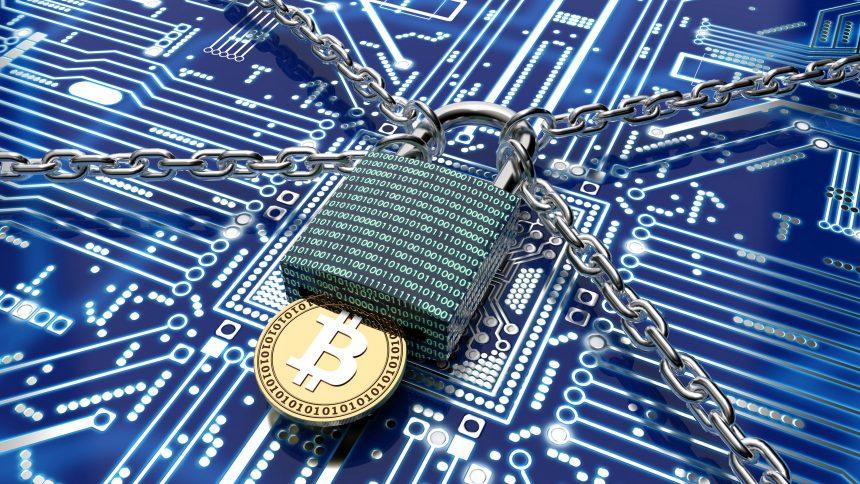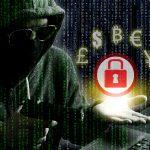Ransomware is a form of malicious software designed to deny access to a system or data until a ransom is paid. This increasingly common type of malware poses a significant threat to individuals and organizations alike, as it can lead to severe data loss, financial strain, and even reputational damage. Among the various strains of ransomware, DarkDev has emerged as a notable threat, characterized by its cunning methods of infiltration and its aggressive tactics for extorting money from victims.
What is DarkDev Ransomware?
DarkDev is a type of ransomware that employs encryption to lock files on the infected system, rendering them inaccessible. Once it has infiltrated a computer, it encrypts various file types, adding a specific file extension that signals the files are compromised. Common file extensions used by DarkDev include .darkdev. For instance, a file named “document.pdf” would be transformed into “document.pdf.darkdev” after encryption. This alteration not only signifies the presence of ransomware but also serves as a clear indication to victims that their files are under threat.
Download SpyHunter Now & Scan Your Computer For Free!
Remove this and any other malicious threats to your system by scanning your computer with SpyHunter now! It’s FREE!
How DarkDev Ransomware Functions
DarkDev typically infiltrates systems through phishing emails, malicious downloads, or vulnerabilities in outdated software. Upon successful installation, it initiates a series of actions that effectively lock users out of their files. The ransomware scans the system for various file types, including documents, images, and videos, before encrypting them. The result is a substantial loss of access to crucial data, which can disrupt both personal and professional activities.
Once the encryption process is complete, DarkDev generates a ransom note, which is usually displayed on the user’s screen. This note contains instructions on how to pay the ransom, typically demanded in cryptocurrency to maintain anonymity. The note often features threats of permanent data loss if the ransom is not paid within a specific timeframe, instilling fear in victims and pressuring them to comply.
The Ransom Note
The ransom note left by DarkDev is often designed to elicit panic and urgency. It may include language such as:
- “All your files have been encrypted!”
- “To recover your files, send [amount] in Bitcoin to [wallet address].”
- “If you do not pay within [number] hours, your files will be permanently deleted!”
DarkDev ransomware’s ransom note (“How_to_back_files.hta“):
Files are locked* but not corrupted
–
Your computer is infected with a virus.
Files are locked* but not corrupted.
For faster and more convenient communication, please use our contact in the qTox messenger.
Download link: hxxps://tox.chat
Our contact ID in qTox is:
72E7879A2CE1314697BA5AD32E4B895704C8B95A27F87A2993C2F2939A0E141F63B3B0E25EFD
We will provide all further information in a new chat.
Please indicate your ID 0EBDC6A3-3539 in your message and we will help you.
You can also write to E-Mail: finamtox@zohomail.eu
*you can send us a couple of files and we will return the restored ones to prove that only we can do it
Downloaded data of your company:
1. Data leakage is a serious violation of the law. Don’t worry, the incident will remain a secret, the data is protected.
2. After the transaction is completed, all data downloaded from you will be deleted from our resources. Government agencies, competitors, contractors and local media not aware of the incident.
3. Also, we guarantee that your company’s personal data will not be sold on DArkWeb resources and will not be used to attack your company, employees and counterparties in the future.
4. If you have not contacted within 2 days from the moment of the incident, we will consider the transaction not completed. Your data will be sent to all interested parties. This is your responsibility.
IMPORTANT:
1. the infection was due to vulnerabilities in your software
2. if you want to make sure that it is impossible to recover files using third-party software, do this not on all files, otherwise you may lose all data.
3. only communication through our email can guarantee file recovery for you. We are not responsible for the actions of third parties who promise to help you – most often they are scammers.
4. if we do not respond to you within 24 hours, send a message to the email finamtox@zohomail.eu
5. if you need an alternative communication channel – write a request by e-mail
6. our goal is to return your data, but if you do not contact us, we will not succeed
Attention!:
1. Do not rename encrypted files.
2. Do not try to decrypt your data using third party software, it may cause permanent data loss.
3. Decryption of your files with the help of third parties may cause increased price (they add their fee to our) or you can become a victim of a scam.
Symptoms of DarkDev Ransomware Infection
Recognizing the symptoms of a DarkDev infection is crucial for timely action. Common indicators include:
- Inability to access files or documents.
- File names with the .darkdev extension.
- Presence of a ransom note on the desktop or within a pop-up window.
- Slow system performance or crashes.
- Unusual network activity or unauthorized access attempts.
Detection Names for DarkDev Ransomware
To confirm the presence of DarkDev ransomware on your computer, you may encounter detection names such as:
- Ransom.DarkDev
- Trojan.Ransom
- Ransomware.DarkDev
Similar Threats to DarkDev Ransomware
While DarkDev is a significant threat, users should also be aware of similar ransomware strains, such as:
- LockBit: Known for its rapid encryption and aggressive ransom demands.
- Ryuk: Targets enterprise environments with advanced encryption techniques.
- Sodinokibi: Utilizes a ransomware-as-a-service model, making it accessible to less skilled attackers.
Comprehensive Removal Guide for DarkDev Ransomware
If you suspect that your system is infected with DarkDev ransomware, follow these steps for removal:
Download SpyHunter Now & Scan Your Computer For Free!
Remove this and any other malicious threats to your system by scanning your computer with SpyHunter now! It’s FREE!
- Disconnect from the Internet: Immediately disconnect your computer from the internet to prevent further data transmission to the attackers.
- Boot into Safe Mode:
- Restart your computer.
- Press F8 repeatedly as your computer starts up.
- Select Safe Mode with Networking from the options.
- Use Anti-Malware Software:
- Download and install SpyHunter. It offers a free scan to detect and remove malware.
- After installation, run a full system scan.
- Follow the Software’s Instructions: Allow SpyHunter to remove the detected threats. Follow any prompts provided by the software to ensure thorough removal.
- Restore Your Files: If you have backups of your files, restore them from a secure location. Ensure that your backups are free from malware before restoring.
- Change Passwords: After removing the ransomware, change your passwords for all accounts, especially those related to banking or sensitive information.
- Update Your System and Software: Ensure that your operating system and all software are updated to patch vulnerabilities that may have been exploited during the attack.
- Consider Professional Help: If you are unable to remove the ransomware or recover your files, consider seeking professional IT support.
Preventing Future Infections
To protect against future ransomware attacks, consider these preventive measures:
- Regular Backups: Maintain regular backups of important files on an external hard drive or cloud service.
- Update Software: Keep your operating system and applications updated to protect against vulnerabilities.
- Use Reliable Security Software: Invest in a reputable anti-malware solution to detect and prevent infections.
- Be Cautious with Emails: Avoid clicking on links or downloading attachments from unknown sources.
Conclusion
Ransomware like DarkDev presents a significant threat to data security and personal privacy. By understanding its mechanisms and symptoms, users can take proactive steps to detect and remove the malware. For the best protection, consider using anti-malware tools like SpyHunter to scan your computer for free and ensure your system remains safe.




